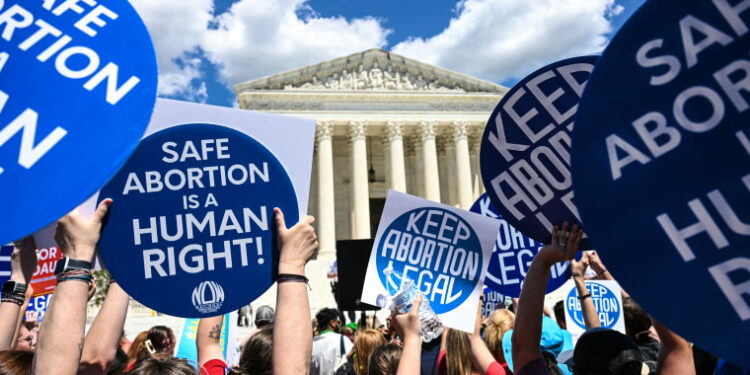WASHINGTON — The Supreme Court on Wednesday acknowledged that it inadvertently posted online a document related to a pending abortion case, which was obtained by Bloomberg Law before it was removed from the website.
Supreme Court spokeswoman Patricia McCabe confirmed that a document was “inadvertently and briefly uploaded” to the court website, but added that the ruling “has not been released.”
NBC News has not seen a copy of the document and could not independently verify the document. It is not known if it was a draft decision, the actual decision or neither.

The court appears set to allow emergency room doctors in Idaho to perform abortions according to a copy of the decision, Bloomberg reported. The court is likely to dismiss the appeal brought by Idaho officials, Bloomberg said.
In doing so the court will allow a lower court ruling in favor of the Biden administration to go back into effect. Three conservative justices, Justice Clarence Thomas, Justice Samuel Alito and Justice Neil Gorsuch object to that conclusion, Bloomberg reported.
The Supreme Court in January blocked the lower court ruling and allowed Idaho to enforce its abortion law in full while agreeing to hear oral arguments in the case. Other provisions of the ban are already in effect and will not be affected by the ruling.
The case concerns whether a federal law that regulates emergency room treatment overrides Idaho’s strict abortion ban. But if the court dismisses the appeal, the decision would leave the legal question unresolved.
Bloomberg reported that liberal Justice Ketanji Brown Jackson wrote separately to say the court should have gone ahead and decided the bigger issue, which is likely to come up in another case in due course.
Idaho’s law says anyone who performs an abortion is subject to criminal penalties, including up to five years in prison. Health care professionals found to have violated the law can lose their professional licenses.
The federal government sued, leading a federal judge in August 2022 to block the state from enforcing provisions concerning medical care that is required under the federal Emergency Medical Treatment and Labor Act, or EMTALA.
That 1986 law mandates that patients receive appropriate emergency room care. The Biden administration argued that care should include abortions in certain situations when a woman’s health is imperiled even if death is not imminent.
The Supreme Court is due to issue rulings on Thursday and Friday as it reaches the end of its current term. The abortion case is one of 12 argued cases yet to be decided.







